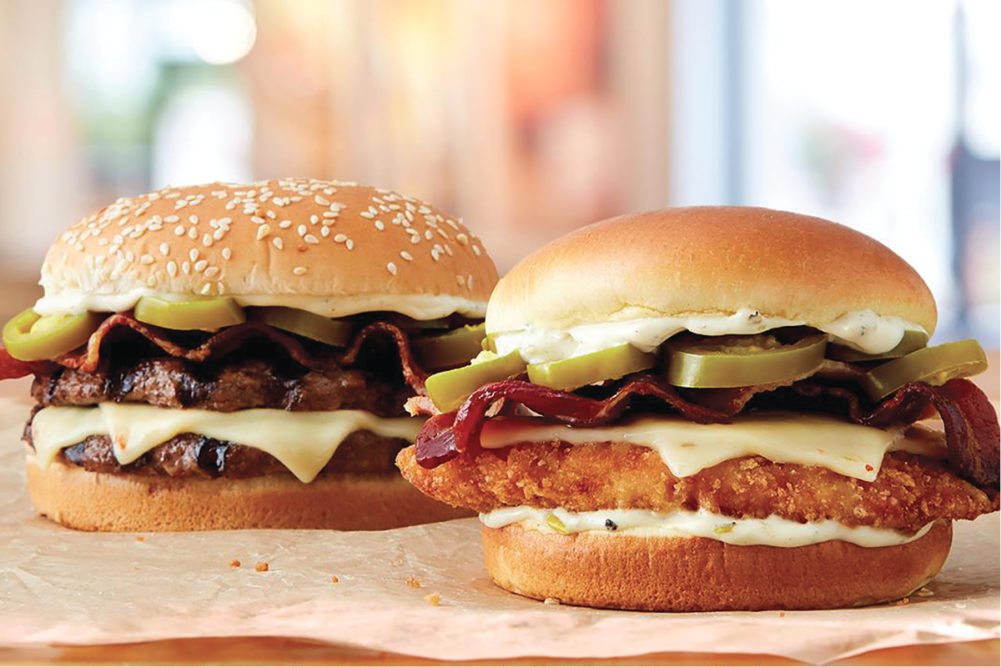TORONTO — Restaurant Brands International, Inc. is living up to its name. The owner of restaurant chains Burger King, Popeyes and Tim Hortons has international expansion plans for all three brands, with Popeyes leading the way so far in 2021.
“At our investor day in May 2019, we shared our aspiration of growing to 40,000 restaurants within 8 to 10 years, and we remain committed to that aspiration despite a year of flat growth in 2020 because of COVID disruptions and our proactive strategic closure program,” said Jose E. Cil, chief executive officer of RBI, in an April 30 earnings call to discuss first-quarter results. “Foundational to our global growth strategy is unlocking the substantial opportunity to grow our brands in many countries where we're underpenetrated today versus our top competitors and that we attract stable, well-capitalized and experienced operators and investors in the QSR (quick-service restaurant) space to deliver on multiyear growth commitments in order to achieve that unlock.”
At the end of March, RBI had 27,173 restaurants, including 18,691 for Burger King, 4,987 for Tim Hortons and 3,495 for Popeyes.
The momentum of chicken sandwich sales has drawn international interest for Popeyes, Mr. Cil said.
“And it's led to important partnerships in the UK, in India, in Mexico, in Saudi, and we think it's just the beginning of the potential this brand has internationally,” he said.
The Popeyes brand in March entered into an agreement with JK Capital to bring hundreds of Popeyes restaurants to Mexico. Popeyes currently has a restaurant in Guadalajara, Mexico. The same month Popeyes and Jubilant Foodworks, Ltd. announced plans to open hundreds of Popeyes restaurants across India, Bangladesh, Nepal and Bhutan. On April 26, Popeyes and Gulf First Fast Food Co. announced a plan to develop the Popeyes brand in Saudi Arabia. Gulf First entered into an exclusive master franchise and development agreement for the territory.
The international business of Burger King doubled in size from 2012 to 2020, Mr. Cil said.
“But the reality is we still have a ton of room for growth in many of the markets where we made up ground versus our competitors over the last eight years,” he said. “China, France, Spain, UK, Germany, Brazil, these are markets where we've seen tremendous growth, but we still have big opportunities for growth going forward, and we have great partners and great teams there to achieve that.”
Tim Hortons will expand in China.
“Our development teams continue to have meaningful conversations with strong operators and investors around the world, building our pipelines for future expansion,” Mr. Cil said. “A great example of how impactful these partnerships can become is Tim Hortons China. Along with our lead partner there, Cartesian Capital Group, we announced in the quarter an exciting new round of funding from existing investor, Tencent, and new investors, Sequoia Capital and Eastern Bell, to support opening more than 200 new Tim Hortons restaurants in China this year alone and upwards of 1,500 over the initial term of the agreement.”
Toronto-based Restaurant Brands International reported net income attributable to common shareholders of $179 million, or 59¢ per share on the common stock, in the quarter ended March 31, which was up 24% from $144 million, or 48¢ per share, in the previous year’s first quarter. Total revenues of $1.26 billion were up 2.9% from $1.23 billion.
Burger King posted comparable store sales growth of 0.7% in the quarter. Popeye’s had comparable store sales growth of 1.5%, and comparable store sales dropped 2.3% for Tim Hortons.
“There's no doubt that the biggest factor affecting our performance at Tims is the continued lockdown of a large majority of (Canada), significantly affecting mobility,” Mr. Cil said. “Americans are experiencing a very different path out of COVID than Canadians today. Canada continues to face strict lockdowns in much of the country, with mobility severely restricted. As we sit here today, Ontario, which is where nearly 40% of Canadians live and where nearly 50% of our restaurants exist, is in a mandatory stay-at-home order until at least May 20, and there's a real possibility of that being extended.”






